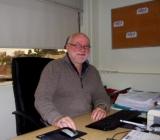
As a new arrival in Melbourne, I wasn’t familiar with its harsh winter. Wind, rain and low temperatures are now all-too-familiar as I was heading to meet Martin Wright, station manager of ethnic community radio, 3ZZZ.
Wright’s warm welcome and the cosy atmosphere of the studio quickly warmed me up, and made our conversation about Melbourne, multiculturalism and of course 3ZZZ, rather pleasant.
With more than 100 community groups broadcasting in 80 different languages, 3ZZZ can take pride in being the largest ethnic community radio station in Australia.
Martin describes the first days of the station, back in 1989.
‘It all started a long time ago. There was a community need seen by people like George Zangalis for a new radio station about ethnic communities,’ he says.
‘In the beginning, they started broadcasting from the basement of Trades Hall. As soon as they raised enough money they bought our current building in Fitzroy,’ he adds.
After all these years of operation, what really motivates people to tune their radio to 92.3 FM and listen to an ethnic community program?
Wright explains the idea that keeps listeners to the station.
‘The main advantage of the station is that it allows community access. It promotes language, culture and helps people settle in Australia. It’s the true idea of multiculturalism. Every time I stroll to the city I understand why Melbourne is regarded as one of the most multicultural places in the world. It’s the ideal place to start such a station,’ Wright says.
But what really makes Melbourne different to other cities, as far as multiculturalism is concerned, and why hasn’t the city’s character changed throughout these years?
‘The main difference between Melbourne and other capital cities, most of which have equivalent stations to us, is that we don’t just tolerate the difference; we embrace it. Everyone that comes to live here adds something to the city and its identity,’ he urges.
In a city with almost 40 per cent of the people speak a language other than English at home, Wright explains how the station promotes language diversity in all age groups.
‘Through the radio people listen to the news in their own language, children learn the language of their ancestors, and they also become familiar with their traditions,’ he says.
Furthermore, Martin gives us two examples of two specific age groups that seek information in their native language.
‘For new arrivals to Melbourne this radio station is like a one-way road. When they arrive in the city they are not fluent in English. As soon as they tune in to 3ZZZ they can learn about job opportunities, access services and transport; all in their language.’
But it’s not only the new waves of immigrants that tune on 93.2 fm, but older established ones too.
‘It’s widely known that when people get older they revert to their own language. I know people that have worked in shops or they were running their own business and they had to speak English every day, but now they mostly use their native language. It is significant for them to be able to turn on the radio and listen to the news and music in the way they want to.’
3ZZZ still plays a major role in the connection of ethnic communities – despite modern technology.
‘There are ethnic communities of six or seven hundred people here in Australia, and they can’t have their own newspaper. 3ZZZ is literally their only channel to learn about the news and events that concern their own community.’
As soon as I started reading about 3ZZZ, what really amazed me was the number of volunteer broadcasters participating on a weekly basis.
‘We have more than 450 broadcasters, all volunteers. Everybody comes here because they are passionate about their community; they don’t care about the time or the petrol they might spend.’
Wright explains how communities can establish their own programs.
‘First and foremost you must have minimum 40 people of your community as members. Then you elect a committee and the committee chooses broadcasters. We train the broadcasters for free, not only to control the panel but also so we can give them theoretic knowledge like the rules of defamation’.
When it comes to freedom of speech though, do broadcasters have to follow a particular angle?
‘Communities control their own programs. We don’t give them any guidance. Everybody is independent.’
Ody Kripotos is a Master of Global Communications student at La Trobe University and is a staff writer for upstart. You can follow him on Twitter: @noseriousreasons






